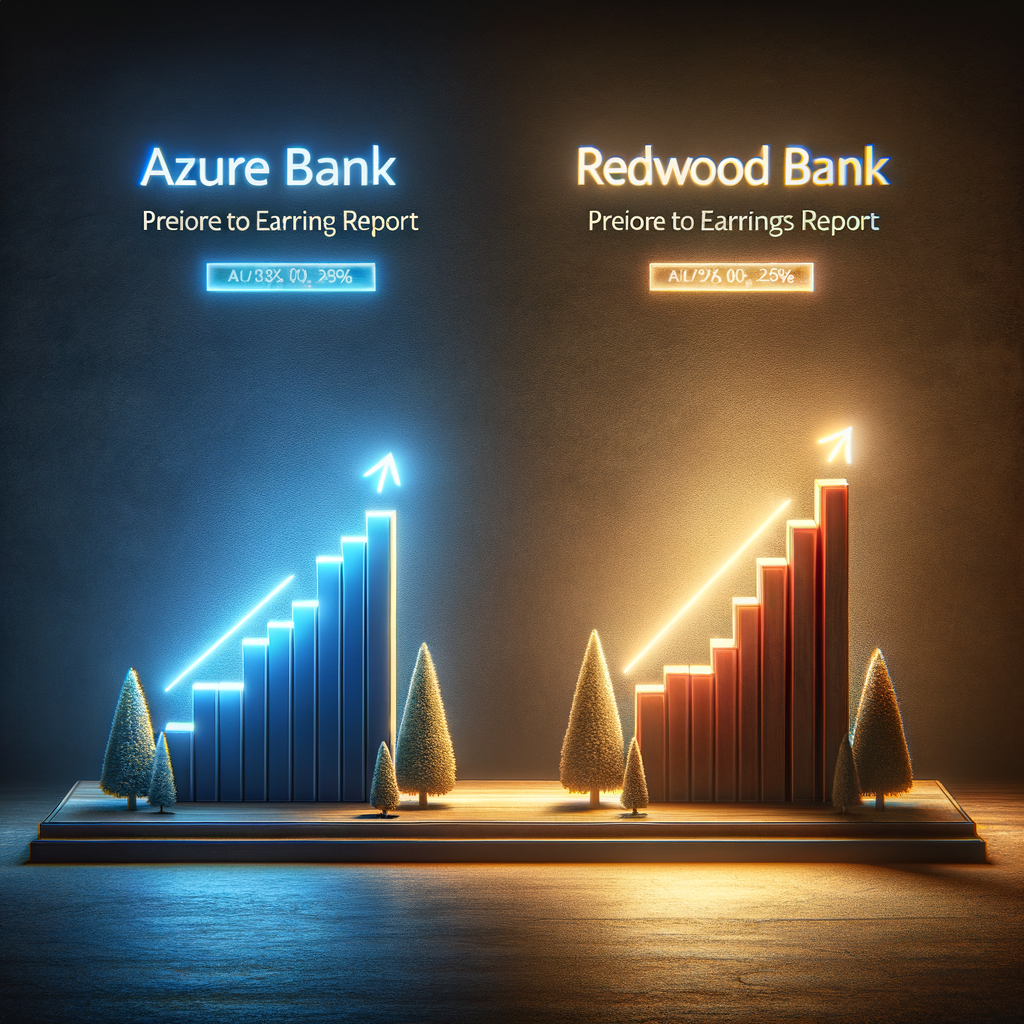Analyzing Deutsche Bank’s Decision to Upgrade JPMorgan’s Stock Before Earnings
JPMorgan’s Stock Upgraded, Wells Fargo’s Stock Downgraded by Deutsche Bank Prior to Earnings Report
In a move that has caught the attention of investors and market analysts alike, Deutsche Bank has recently adjusted its stance on two of the banking sector’s heavyweights. With the earnings season just around the corner, the financial institution has upgraded JPMorgan Chase & Co.’s stock while simultaneously downgrading that of Wells Fargo & Company. This decision reflects a broader sentiment about the potential trajectory of these banks in the face of economic headwinds and sector-specific challenges.
JPMorgan, the largest bank in the United States by assets, has been a beacon of resilience in the financial industry. Deutsche Bank’s upgrade is a testament to the confidence in JPMorgan’s robust business model and its ability to navigate through the complexities of the current economic landscape. The bank’s diversified revenue streams, which span from investment banking to consumer financial services, position it well to capitalize on market opportunities and mitigate risks associated with any single line of business.
Moreover, JPMorgan’s commitment to technological innovation and digital banking solutions has been a key factor in its continued success. The bank’s significant investments in technology have not only improved efficiency but also enhanced customer experience, driving customer retention and attracting new clients. This forward-thinking approach is expected to pay dividends, particularly as the banking sector becomes increasingly competitive with the rise of fintech and non-traditional financial service providers.
On the other hand, Wells Fargo’s downgrade by Deutsche Bank paints a contrasting picture. The San Francisco-based bank has been grappling with a series of challenges, including regulatory scrutiny and reputational issues stemming from past scandals. Despite efforts to overhaul its operations and restore trust among its customer base, Wells Fargo has faced difficulties in fully turning the page on its troubled past.
The downgrade suggests that Wells Fargo may still have a rocky road ahead, especially as it prepares to release its earnings report. Investors are keenly aware that the bank’s performance could be hampered by potential legal costs and regulatory penalties, which could weigh on its financial results. Additionally, the low interest rate environment has put pressure on the bank’s net interest margin, a key measure of profitability for financial institutions.
As the market anticipates the upcoming earnings reports, the contrasting outlooks for JPMorgan and Wells Fargo underscore the importance of strong leadership, strategic vision, and operational efficiency in the banking sector. JPMorgan’s upgrade is a nod to its ability to deliver consistent results and maintain a competitive edge, even in uncertain times. Conversely, Wells Fargo’s downgrade serves as a reminder of the long-term impact that governance issues and strategic missteps can have on a bank’s performance and investor sentiment.
Investors will be watching closely as both banks reveal their quarterly financials, eager to see whether the predictions implied by Deutsche Bank’s ratings come to fruition. For JPMorgan, the optimism surrounding its upgrade could translate into continued investor confidence and potentially a stronger stock performance. Meanwhile, Wells Fargo will be under scrutiny to demonstrate that it can overcome its challenges and set a course for recovery.
In conclusion, Deutsche Bank’s decision to upgrade JPMorgan’s stock and downgrade Wells Fargo’s ahead of their earnings reports reflects a belief in the divergent paths these institutions are on. As the banking sector evolves amidst economic and regulatory changes, the fortunes of these two giants will be a bellwether for the industry at large. Investors and analysts alike will be watching with keen interest as the drama of earnings season unfolds.
The Implications of Wells Fargo’s Stock Downgrade by Deutsche Bank on Investor Sentiment
JPMorgan’s Stock Upgraded, Wells Fargo’s Stock Downgraded by Deutsche Bank Prior to Earnings Report
In a move that has caught the attention of Wall Street, Deutsche Bank has adjusted its stance on two of the financial sector’s heavyweights. JPMorgan Chase & Co. received an upgrade, while Wells Fargo & Co. faced a downgrade just before the release of their earnings reports. This decision by one of Europe’s leading banks has rippled through the investment community, influencing investor sentiment and prompting a reevaluation of portfolios.
The upgrade of JPMorgan’s stock is a testament to the bank’s robust financial health and its ability to navigate the complex landscape of global finance. Deutsche Bank’s analysts have expressed confidence in JPMorgan’s growth prospects, citing its diversified revenue streams and strong management team as key factors that set it apart from its peers. This optimistic outlook has been well-received by investors, who are always on the lookout for stable and promising investment opportunities, especially in an industry that is often rocked by economic fluctuations.
On the flip side, the downgrade of Wells Fargo’s stock has cast a shadow over the bank’s near-term prospects. Despite Wells Fargo’s efforts to overcome past challenges and rebuild its reputation, Deutsche Bank’s assessment suggests that there may still be hurdles ahead. The downgrade reflects concerns about the bank’s revenue generation capabilities and the potential impact of regulatory pressures. However, it’s important to note that downgrades are not uncommon in the banking sector and can sometimes serve as a catalyst for companies to accelerate their strategic initiatives and prove their resilience to the market.
Investor sentiment is a delicate barometer, sensitive to the slightest changes in the financial climate. The contrasting fortunes of JPMorgan and Wells Fargo, as perceived by Deutsche Bank, have certainly influenced the mood among shareholders and potential investors. While some may see the downgrade as a reason for caution, others might view it as an opportunity to buy stocks at a lower price, anticipating a future rebound.
The timing of these stock rating changes is particularly significant, as they come just before the banks are set to disclose their quarterly earnings. Earnings reports are pivotal moments for financial institutions, as they provide a transparent look at their performance and offer insights into future strategies. Investors will be watching closely to see if the earnings validate Deutsche Bank’s assessments.
For JPMorgan, the upgraded rating coupled with a strong earnings report could reinforce investor confidence and potentially lead to an uptick in its stock price. Conversely, Wells Fargo has a more challenging path ahead. If its earnings report falls short of expectations, the downgrade could be seen as a prescient move by Deutsche Bank, possibly leading to a further dip in investor confidence and stock value.
However, it’s crucial to maintain an optimistic perspective. The financial sector is known for its resilience and ability to adapt to changing market conditions. Wells Fargo’s downgrade, while a setback, also presents the bank with an opportunity to address concerns head-on and demonstrate its commitment to long-term growth and stability.
In conclusion, Deutsche Bank’s recent stock rating adjustments for JPMorgan and Wells Fargo have stirred the pot in the financial sector, setting the stage for an intriguing earnings season. As investors digest these developments and look ahead to the reports, the overarching sentiment remains one of cautious optimism. The banking industry has weathered many storms, and with each challenge comes the chance for institutions to emerge stronger and more focused on delivering value to their shareholders.







